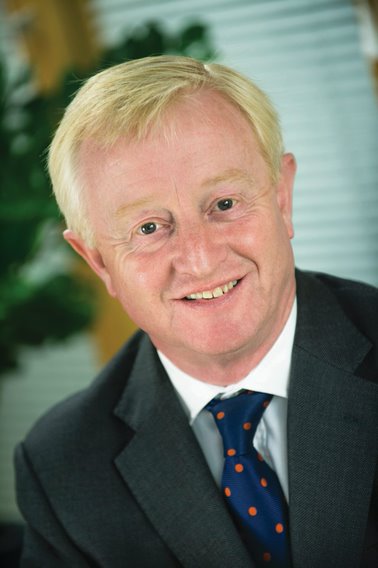Q. Has the industry changed drastically since you started working in it?
I first got involved in the legal sector as a specialist banker when I was with Lloyds Bank. As a relationship director, I’d had many law firms as customers over the years and I always enjoyed working with them because of their integrity, intelligence and fierce independent spirit. They could be challenging, but always interesting. I persuaded my bosses at Lloyds to create a role to oversee the professions as a sector, and became the first incumbent of that role; it’s pretty rare in such a huge organisation to get to write your own job specification!
At the time, the Legal Services Act 2007 was fresh and the SRA had just been created. Commentators were beginning to predict a huge shrinkage in the number of firms and people would whisper ‘Tesco Law’. I don’t know why, but they always whispered it.
Fast forward to now, and the profession, despite seeing as many changes in the past ten years as in the previous hundred, has proved remarkably resilient, adapting to enormous changes in their regulatory and competitive landscape. I admire that, and guess what – there’s broadly the same number of firms now as then.
Q. What has been the key positive, or negative, impact of change in your area of the market?
LawNet member firms are committed to Quality processes through our ISO9001 Quality Standard, and to improving the customer journey through our Excellence Mark package which includes client experience audits (think mystery shopping but designed for law firms) and post-matter online client questionnaires. The way solicitors have embraced this is a real positive and the learning arising from testing has greatly improved client outcomes.
By contrast, interference from the Competition & Markets Authority, leading to the mandatory publication of prices before a conversation has even been had with a potential client, is a big negative for me because it ignores the fact that people want value, not the cheapest price. Price plus quality = value. Who seeks out the cheapest parachute?
Q. Who inspires/inspired you and why?
That’s easy. It’s the work that our member firms do in their local communities. We see their people offering their time as school governors, charity trustees and coastguard crew. We see firms contributing to self-help groups, raising money for defibrillators in their communities, helping people with start-up businesses, supporting young carers to get a break from their responsibilities looking after parents with illnesses and disabilities. They don’t always measure the time they give for free, but it runs into the millions in our network. It’s hard not to be inspired by that.
Q. What has been the most valuable piece of advice given to you?
A very old-school and very senior bank manager that I once worked for helped me to understand that while we can all improve, we should try to be the best version of ourselves that we can be, rather than try to be something else. In other words, sharpen up your strengths and don’t agonise too much on things that come less naturally to you. Instead, surround yourself with people who can compensate.
Q. If you were not in your current position, what would you be doing?
I suppose I’d still be a banker. I enjoyed my time in banking but I’m so lucky that my last bank role was the ideal preparation for this job, which is the best I’ve ever had. It’s a privilege to work with a great team in a member-owned network with no profit motive and whose only purpose is to help members achieve more together than they could alone.



